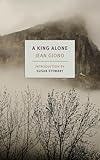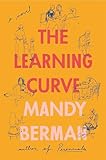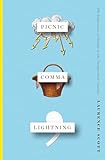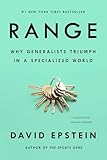Here’s a quick look at some notable books—new titles from the likes of Gabriela Ybarra, Mandy Berman, Jill Lepore, David Epstein, and more—that are publishing this week.
Want to learn more about upcoming titles? Then go read our most recent book preview. Want to help The Millions keep churning out great books coverage? Then sign up to be a member today.
The Dinner Guest by Gabriela Ybarra (translated by Natasha Wimmer)
 Here’s what Publishers Weekly had to say about The Dinner Guest: “Ybarra draws on two deaths in her family for this affecting, memoirlike novel, her first to be translated into English. In 1977, three masked assailants burst into the house of Ybarra’s paternal grandfather, Javier, a prominent businessman in the Basque Country of Spain. They kidnap him and later demand an exorbitant ransom. Ybarra imagines the family’s desperation over their inability to provide the sum, and the lengths they go to, including using divination and a complicated scheme to communicate with Javier via crossword puzzles. Even the discovery of Javier’s body after about a month of captivity provides incomplete closure to the family. In 2011, Ybarra’s mother, Ernestina, is diagnosed with cancer. She immediately moves to New York for treatment, where Ybarra takes a leave of absence from school and work to be with her. Ybarra revisits sites of Ernestina’s treatment following her death and reflects on the pain of her loss. Ybarra favors deep emotion over clear explanations and provides only passing references to her family’s wealth and the political components of the kidnapping. This novel’s honest rawness of coming to terms with premature death will resonate with readers.”
Here’s what Publishers Weekly had to say about The Dinner Guest: “Ybarra draws on two deaths in her family for this affecting, memoirlike novel, her first to be translated into English. In 1977, three masked assailants burst into the house of Ybarra’s paternal grandfather, Javier, a prominent businessman in the Basque Country of Spain. They kidnap him and later demand an exorbitant ransom. Ybarra imagines the family’s desperation over their inability to provide the sum, and the lengths they go to, including using divination and a complicated scheme to communicate with Javier via crossword puzzles. Even the discovery of Javier’s body after about a month of captivity provides incomplete closure to the family. In 2011, Ybarra’s mother, Ernestina, is diagnosed with cancer. She immediately moves to New York for treatment, where Ybarra takes a leave of absence from school and work to be with her. Ybarra revisits sites of Ernestina’s treatment following her death and reflects on the pain of her loss. Ybarra favors deep emotion over clear explanations and provides only passing references to her family’s wealth and the political components of the kidnapping. This novel’s honest rawness of coming to terms with premature death will resonate with readers.”
A King Alone by Jean Giono (translated by Alyson Waters)
 Here’s what Publishers Weekly had to say about A King Alone: “This strange and disquieting novel from Giono (Melville) is set in an unnamed Alpine village and begins in 1843, when its residents begin disappearing. First, a young woman disappears, then a pig is slashed, then a hunter disappears. Captain Langlois is called in to investigate, and the killer is found. The serpentine novel then jumps years forward with Langlois now in charge of protecting the village from wolves, and then leaps forward again to relate Langlois’s ill-fated search for a wife to marry, leading to a startling finale. Rather than episodic, the twisting narrative reads like a game of telephone passed through generations, with Langlois at the center as a sort of legendary totem to the villagers. Intriguingly, his inner thoughts are never revealed, and the villagers can only guess at what he is thinking. Highlights include stellar landscape descriptions (‘All around us the larks were making noise like knives squeaking in green apples’) and some spectacular scenes, including a wolf hunt and a chilling sequence that begins with a grisly discovery in a beech tree. Giono’s novel is a startling and exhilaratingly enigmatic experience.”
Here’s what Publishers Weekly had to say about A King Alone: “This strange and disquieting novel from Giono (Melville) is set in an unnamed Alpine village and begins in 1843, when its residents begin disappearing. First, a young woman disappears, then a pig is slashed, then a hunter disappears. Captain Langlois is called in to investigate, and the killer is found. The serpentine novel then jumps years forward with Langlois now in charge of protecting the village from wolves, and then leaps forward again to relate Langlois’s ill-fated search for a wife to marry, leading to a startling finale. Rather than episodic, the twisting narrative reads like a game of telephone passed through generations, with Langlois at the center as a sort of legendary totem to the villagers. Intriguingly, his inner thoughts are never revealed, and the villagers can only guess at what he is thinking. Highlights include stellar landscape descriptions (‘All around us the larks were making noise like knives squeaking in green apples’) and some spectacular scenes, including a wolf hunt and a chilling sequence that begins with a grisly discovery in a beech tree. Giono’s novel is a startling and exhilaratingly enigmatic experience.”
The Learning Curve by Mandy Berman
 Here’s what Publishers Weekly had to say about The Learning Curve: “The complexities of intimacy and consent are explored in this smart, engaging coming-of-age story from Berman (Perennials). Fiona Larkin and Liv Langley are best friends and codependent polar opposites in their senior year of college, though Fiona lags a semester behind, having taken time off to deal with the death of her 13-year-old sister. Fiona and Liv’s relationship is strained when both women start crushing on visiting professor Oliver Ash, despite, or perhaps because of, the rumors about his inappropriate sexual relationship with an underage student at the last school at which he taught. As the girls make halting attempts to untangle their own desires, grow closer with Oliver, and communicate honestly with each other, Oliver’s wife and five-year-old son, left behind in Berlin, deal with his absence. Things come to a head on a disastrous trip to Paris, where all three women, the novel’s narrators, collide. Readers expecting a typical love triangle won’t find one. Instead, Berman delivers a thorough and incredibly timely investigation into relationship power imbalances that’s sure to start a lot of conversations.”
Here’s what Publishers Weekly had to say about The Learning Curve: “The complexities of intimacy and consent are explored in this smart, engaging coming-of-age story from Berman (Perennials). Fiona Larkin and Liv Langley are best friends and codependent polar opposites in their senior year of college, though Fiona lags a semester behind, having taken time off to deal with the death of her 13-year-old sister. Fiona and Liv’s relationship is strained when both women start crushing on visiting professor Oliver Ash, despite, or perhaps because of, the rumors about his inappropriate sexual relationship with an underage student at the last school at which he taught. As the girls make halting attempts to untangle their own desires, grow closer with Oliver, and communicate honestly with each other, Oliver’s wife and five-year-old son, left behind in Berlin, deal with his absence. Things come to a head on a disastrous trip to Paris, where all three women, the novel’s narrators, collide. Readers expecting a typical love triangle won’t find one. Instead, Berman delivers a thorough and incredibly timely investigation into relationship power imbalances that’s sure to start a lot of conversations.”
This America by Jill Lepore
 Here’s what Publishers Weekly had to say about This America: “In this somewhat underdeveloped ‘long essay,’ historian Lepore (These Truths) sets out to summarize nationalism for a lay audience and rally historians to fight against its encroaching presence in American life. She takes readers through a history of nationalism’s contradictory and overlapping meanings, skipping between debates among the country’s founders and Donald Trump’s recent self-identification as a nationalist in order to examine the moral and philosophical struggles of citizenship, nationalism, and identity in a country that has at one time or another espoused everything from universal suffrage to the stripping of citizenship from those who cannot pass for white. Lepore differentiates between patriotism and nationalism and, in a move that may surprise readers, blames the 20th- and 21st-century resurgences of nationalism on historians who failed to construct a convincing, patriotic counternarrative as a bulwark against it (a mantle she took up herself with These Truths). While Lepore’s sense of personal urgency in taking up this topic is clear, the structure here is choppier and more repetitive than in previous works. Readers expecting Lepore’s usual precision and depth in characterizing the historical record will be disappointed.”
Here’s what Publishers Weekly had to say about This America: “In this somewhat underdeveloped ‘long essay,’ historian Lepore (These Truths) sets out to summarize nationalism for a lay audience and rally historians to fight against its encroaching presence in American life. She takes readers through a history of nationalism’s contradictory and overlapping meanings, skipping between debates among the country’s founders and Donald Trump’s recent self-identification as a nationalist in order to examine the moral and philosophical struggles of citizenship, nationalism, and identity in a country that has at one time or another espoused everything from universal suffrage to the stripping of citizenship from those who cannot pass for white. Lepore differentiates between patriotism and nationalism and, in a move that may surprise readers, blames the 20th- and 21st-century resurgences of nationalism on historians who failed to construct a convincing, patriotic counternarrative as a bulwark against it (a mantle she took up herself with These Truths). While Lepore’s sense of personal urgency in taking up this topic is clear, the structure here is choppier and more repetitive than in previous works. Readers expecting Lepore’s usual precision and depth in characterizing the historical record will be disappointed.”
Picnic Comma Lightning by Laurence Scott
 Here’s what Publishers Weekly had to say about Picnic Comma Lightning: “Scott, a writing lecturer at New York University in London, considers the nature of reality itself in a world of internet exaggeration, digitally edited photos and doctored videos, and humanoid robots in this wide-ranging philosophical investigation. He uses the recent deaths of his parents as an entrance into this subject, demonstrating how reality becomes unmoored during periods of grieving (death, he declares, is like ‘the flicking of a light switch, although whether it has been turned on or off is unclear’). Most often, Scott considers reality through the prism of literary criticism, commenting, for instance, on the newfound popularity of Margaret Atwood’s The Handmaid’s Tale in an era of greater restrictions on women’s reproductive rights, or relating the ‘God-like’ voice of the Amazon Echo to the ‘insinuating oneness of all things’ explored in Jean-Paul Sartre’s Nausea. A chapter on symbolism and metaphor in tech is particularly clever, exploring how ‘the textualisation of our reality,’ through the internet and digital communication, has allowed stories from marginalized individuals and groups to proliferate, thus dispelling stereotypes. Scott’s acutely perceptive book delivers a thoughtful message about finding an authentic way to live at a time when reality itself can seem built on shifting sands.”
Here’s what Publishers Weekly had to say about Picnic Comma Lightning: “Scott, a writing lecturer at New York University in London, considers the nature of reality itself in a world of internet exaggeration, digitally edited photos and doctored videos, and humanoid robots in this wide-ranging philosophical investigation. He uses the recent deaths of his parents as an entrance into this subject, demonstrating how reality becomes unmoored during periods of grieving (death, he declares, is like ‘the flicking of a light switch, although whether it has been turned on or off is unclear’). Most often, Scott considers reality through the prism of literary criticism, commenting, for instance, on the newfound popularity of Margaret Atwood’s The Handmaid’s Tale in an era of greater restrictions on women’s reproductive rights, or relating the ‘God-like’ voice of the Amazon Echo to the ‘insinuating oneness of all things’ explored in Jean-Paul Sartre’s Nausea. A chapter on symbolism and metaphor in tech is particularly clever, exploring how ‘the textualisation of our reality,’ through the internet and digital communication, has allowed stories from marginalized individuals and groups to proliferate, thus dispelling stereotypes. Scott’s acutely perceptive book delivers a thoughtful message about finding an authentic way to live at a time when reality itself can seem built on shifting sands.”
Range by David Epstein
 Here’s what Publishers Weekly had to say about Range: “Journalist and self-identified generalist Epstein (The Sports Gene) delivers an enjoyable if not wholly convincing work of Gladwellian pop-psychology aimed at showing that specialization is not the only path to success. His survey finds no shortage of notable athletes, artists, inventors, and businesspeople who followed atypically circuitous paths. Some are household names, such as J.K. Rowling, who by her own admission ‘failed on an epic scale’ before deciding to pursue writing, and Duke Ellington, who briefly studied music as a child before becoming more interested in basketball and drawing, only returning to music after a chance encounter with ragtime. Others are more obscure, such as Nintendo’s Gunpei Yokoi, who turned his limitations as an electronics engineer to his advantage when he created the cheap-to-produce, durable Game Boy, and Jack Cecchini, ‘one of the rare musicians who is world class in both jazz and classical.’ Epstein’s narrative case studies are fascinating, but the rapid-fire movement from one sketch to the next can create the impression of evidence in search of a thesis. While this well-crafted book does not entirely disprove the argument for expertise, Epstein does show that, for anyone without 10,000 hours to devote to mastering a single skill, there is hope yet.”
Here’s what Publishers Weekly had to say about Range: “Journalist and self-identified generalist Epstein (The Sports Gene) delivers an enjoyable if not wholly convincing work of Gladwellian pop-psychology aimed at showing that specialization is not the only path to success. His survey finds no shortage of notable athletes, artists, inventors, and businesspeople who followed atypically circuitous paths. Some are household names, such as J.K. Rowling, who by her own admission ‘failed on an epic scale’ before deciding to pursue writing, and Duke Ellington, who briefly studied music as a child before becoming more interested in basketball and drawing, only returning to music after a chance encounter with ragtime. Others are more obscure, such as Nintendo’s Gunpei Yokoi, who turned his limitations as an electronics engineer to his advantage when he created the cheap-to-produce, durable Game Boy, and Jack Cecchini, ‘one of the rare musicians who is world class in both jazz and classical.’ Epstein’s narrative case studies are fascinating, but the rapid-fire movement from one sketch to the next can create the impression of evidence in search of a thesis. While this well-crafted book does not entirely disprove the argument for expertise, Epstein does show that, for anyone without 10,000 hours to devote to mastering a single skill, there is hope yet.”








